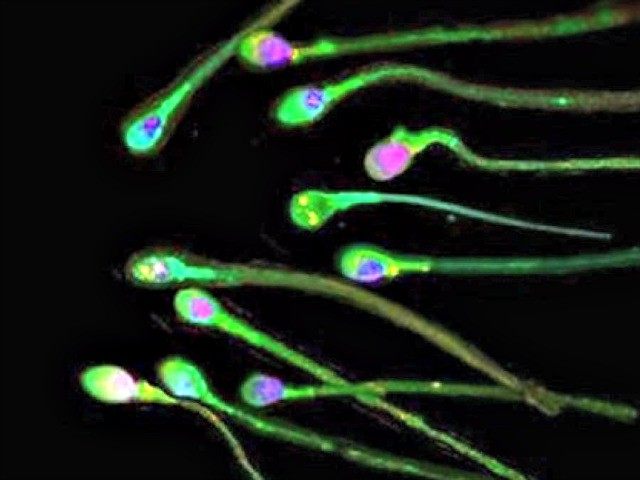Sperm banks in the United Kingdom and the U.S. have changed policies to protect clients from the Zika virus.
The British Fertility Society asked people who traveled to areas with Zika, mainly South America and the Caribbean, not to donate sperm for 28 days.
The California Cryobank will not allow donations from anyone who traveled to those countries or “have had sex with someone who has traveled there within the past month.” Doctors must report any patient who left the U.S. or Canada. New policy also includes checking all “records on where sperm donors have traveled over the past year to see if any have visited the nearly 30 countries and territories where the virus has caused outbreaks.”
Owen Davis, president of the American Society for Reproductive Medicine, said all banks “keep donations in ‘frozen quarantine’ for six months to make sure specimens are disease-free.”
Aedes aegypti mosquitoes carry the disease. While primarily found in Africa, all but two nations on the Western Hemisphere boast significant populations. (Chile and Canada are the exceptions.) They also carry dengue, yellow fever, and chikungunya. Doctors found the disease in one infant during an autopsy, and numerous mothers reported symptoms.
Experts are working to understand what has now become a clear link between Zika and microcephaly, which occurs when the brain does not form properly during pregnancy, causing a small skull. This leads to serious mental disabilities. The CDC stated the disorder is typically uncommon. Following the Zika outbreak, however, Brazil has discovered over 4,000 cases and is diagnosing an average of 200 cases a week. In 2015, the country tracked over 2,400 cases, compared to the 147 in 2014.
The Dallas County Health and Human Services (DCHHS) confirmed a person received the virus after “sexual contact with an individual with Zika.”
“Now that we know Zika virus can be transmitted through sex, this increases our awareness campaign in educating the public about protecting themselves and others,” explained Zachary Thompson, DCHHS director. “Next to abstinence, condoms are the best prevention method against any sexually-transmitted infections.”
Harvey Stern, medical director at Fairfax Cryobank, told USA Today that scientists do not “know how long the Zika virus can survive in semen, or whether the virus is present in the semen of men without symptoms.”
Brazil confirmed two cases of Zika infections through blood transfusions in Campinas.
Campinas Health Secretary Cármino de Souza said the government were not previously able to confirm the infections “because they were initially suspected of being infected with dengue, another mosquito-borne virus.” The two patients received the blood transfusions in early 2015. The Wall Street Journal reported:
The first case involved a liver-transplant recipient who contracted Zika through blood donated in March 2015. The second was a gunshot victim who tested positive for Zika after receiving multiple blood transfusions; he later died of his wounds, not the Zika virus, Campinas health officials said.
The officials confirmed Zika in the donor’s blood on January 28, 2016.
Another donor from May tested positive for Zika, but “the recipient of the contaminated blood has not developed symptoms of the virus.”
The American Red Cross urged people not to donate blood “if they traveled to Latin America or the Caribbean in the past 28 days.” They advised people who have donated blood to alert the organization if they develop Zika symptoms.
“The American Red Cross is dedicated to providing the safest, most reliable blood products possible to patients in need,” stated Susan Stramer, vice president of scientific affairs. “The Red Cross continues to use safety measures to protect the blood supply from Zika and other mosquito-borne viruses.”
Spokeswoman Jodi Sheedy told Breitbart News the organization asks people who develop symptoms to immediately contact them within 14 days so they can quarantine the blood.

COMMENTS
Please let us know if you're having issues with commenting.